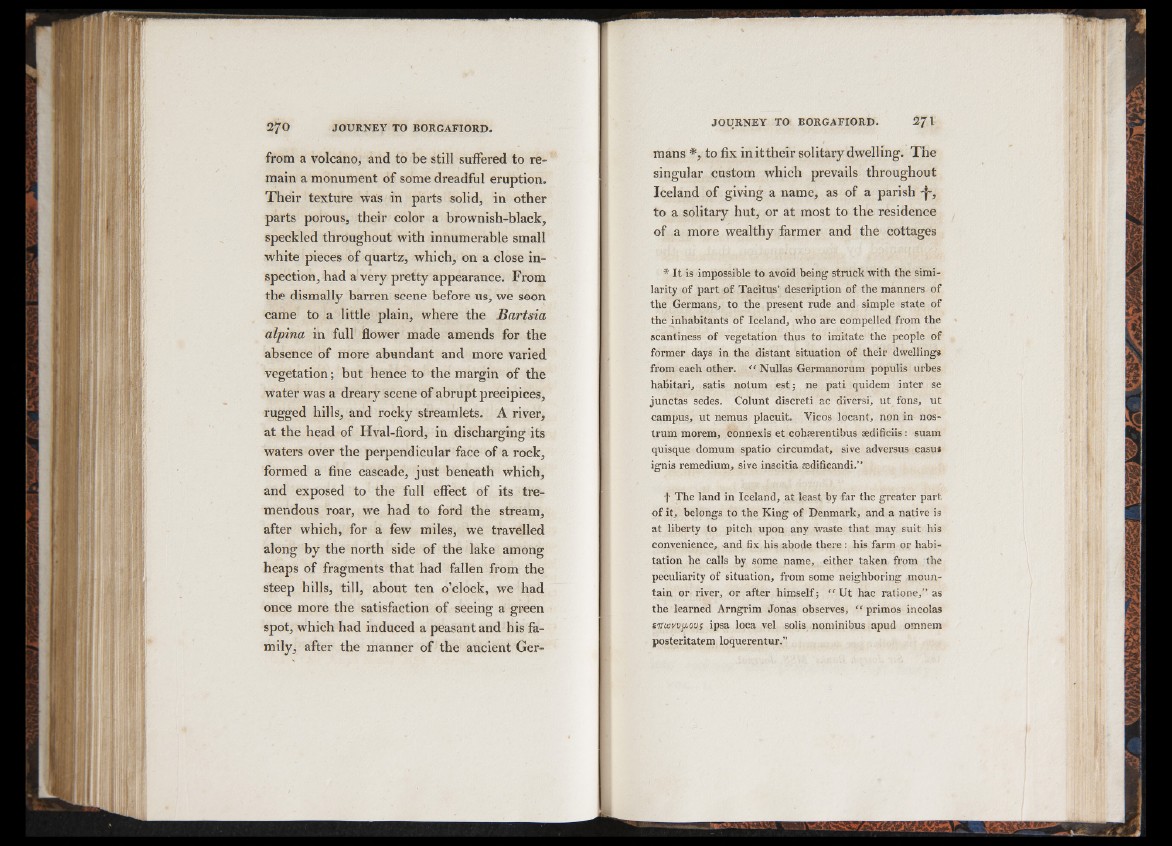
from a volcano, and to be still suffered to remain
a monument of some dreadful eruption.
Their texture was in parts solid, in other
parts porous, their color a brownish-hlack,
speckled throughout with innumerable small
white pieces of quartz, which, on a close inspection,
had a very pretty appearance. From
the dismally barren scene before us, we soon
came to a little plain, where the Bartsia
alpina in full flower made amends for the
absence of more abundant and more varied
vegetation; but hence to the margin of the
water was a dreary scene of abrupt precipices,
rugged hills, and rocky streamlets. A river,
at the head of Hval-fiord, in discharging its
waters over the perpendicular face of a rock,
formed a fine cascade, just beneath which,
and exposed to the full effect of its tremendous
roar, we had to ford the stream,
after which, for a few miles, we travelled
along by the north side of the lake among
heaps of fragments that had fallen from the
steep hills, till, about ten o’clock, we had
once more the satisfaction of seeing a green
spot, which had induced a peasant and his family,
after the manner of the ancient Germans
*, to fix inittheir solitary dwelling. The
singular custom which prevails throughout
Iceland of giving a name, as of a parish
to a solitary hut, or at most to the residence
of a more wealthy farmer and the cottages
* It is impossible to avoid being struck with the similarity
of part pf Tacitus’ description of the manners of
the Germans, to the present rude and simple state of
the inhabitants of Iceland, who are compelled from the
scantiness of vegetation thus to imitate the people of
former days in the distant situation of their dwelling*
from each other. “ Nullas Germanorum populis urbes
habitari, satis notum est; ne pati quidem inter se
junctas sedes. Colunt discreti ac diversi, ut fons, ut
campus, ut nemus placuit. Vicos locant, non in nostrum
morem, connexis et cohrerentibus aedificiis: suam
quisque domum spatio circumdat, sive adversus casus
ignis remedium, sive inscitia sedificandi.”
f The land in Iceland, at least by far the greater part
o f it, belongs to the King of Denmark, and a native is
at liberty to pitch upon any waste that may suit his
convenience, and fix his abode there: his farm or habitation
he calls by some name, either taken from the
peculiarity of situation, from some neighboring mountain
or river, or after himself; f fUt hac ratione,” as
the learned Arngrim Jonas observes, “ primos incolas
iTTcuyv/xouf ipsa loca vel solis nominibus apud omnem
posteritatem loquerentur.”